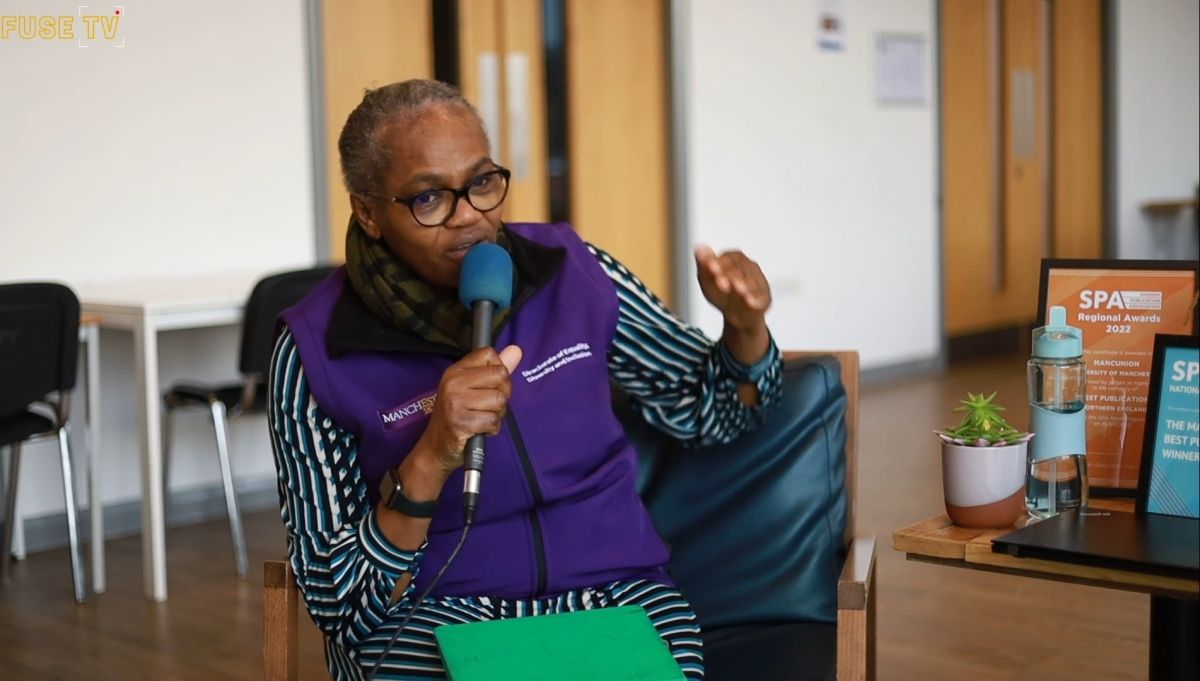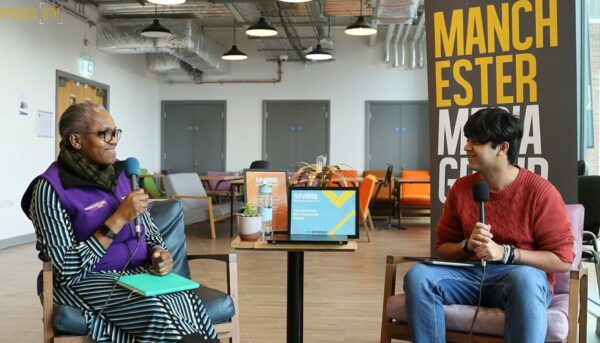EDI Director Banji Adewumi calls for UoM to become “centre of excellence for inclusion”

Oyebanji ‘Banji’ Adewumi MBE is the University of Manchester’s Equality, Diversity and Inclusion (EDI) director, we spoke to her to discuss the EDI team’s plans for the future and what still needs to change.
Banji entered the interview with enthusiasm: she was ready to be asked the tougher questions.
We began by talking about what her role at the University entailed. She stated that her role is to provide, “Strategic support to University staff, leadership and students.” She added that this meant giving the University community a “sense of belonging at the university.”
Her idea behind this was simple: if you go on a walk around the university and ask everyone you see if they feel like they belong at the University, some may say no. Her mission is to make sure that nobody says no.
In the most ideal form, Banji seems to be carrying the beliefs of every underrepresented person on her back. She is passionate about not letting anyone feel left out. While this is ideal, it is refreshing to hear this from someone who can do something about it.
Banji continued to talk about how the senior leadership team and the Students Union have helped in collaborating the EDI strategy. Her main goal in all this is to create an “inclusive environment.”
However, within this section of the strategy, the EDI want to lower the pay gap and the University and College Union (UCU) fighting to accelerate this process. As it stands, the mean pay gap is 15.6% gap within gender and a 13.3% gap within ethnicity. Manchester UCU says that this gap is closing, but not fast enough.
In response, Banji stated, “I join colleagues who are not happy with the gap and you are right. The gap has been there for a number of years.” She adds that the biggest problem is the pace it’s being reduced at.
She explains the reasoning for this. According to her, there are a lot of top female staff members for example who work on a part-time scale. In order to reduce the gap, female staff members will have to stop job-sharing and take on full-time jobs.
However, she proudly highlights that UoM is one of the few universities that is actually going in the right direction and reducing the gap, arguing that there are a lot more universities going the opposite way, and this is not okay.

Moving on from this topic, we talked about the second priority in the EDI strategy, i.e. helping diversity and inclusion across our community. At this point, I felt the need to ask a question regarding the lack of women as senior staff at the University.
Banji partially disagrees, explaining, “We are one of the universities that have got high numbers of females in academic positions.” However, she equally acknowledges that there is work still that needs to be done. Banji talks about looking at problems like this on a deeper level. More specifically, exploring and discussing mental health and how imposter syndrome can be affecting many female staff members.
The staff at the university are making groups to deal with this exact problem, with Banji hoping that the upcoming negotiations lead to an eventual solution.
The third point of the EDI report was the most controversial one. On the surface level, it is about “increasing inclusive practices.” However, the equality report produced by the EDI team uses the term BAME.
I asked whether using the term ‘BAME’ whilst stating that the University will increase inclusive practices is hypocritical. Banji took this on the chin, asking me what course I study. After replying, “History and Politics,” Banji gave a look of dismay, rolling her eyes sarcastically almost to say, ‘These annoying students!’ Later revealing that my course shows in the questions I ask.
However, Banji continued by explaining that this is an important topic. Yet, given that the University comes under the ‘public sector’ their reports have to categorise people according to the will of the government. Additionally, the 2010 Equality Act and the Office of National Statistics, means the University is given categories to show the government that they are providing equal opportunities for students and staff alike. Banji clarified this saying, “We would need to be able to put in each of the categories as given by the government.”
However, she adds that this is not how the EDI likes to categorise people. Adding, “we ourselves aren’t quite comfortable putting people as a generic terminology, but where there is need for benchmarking we would be using this term this what it means. And we wouldn’t knowingly just clump people together we will be specific.”
In that regard, the EDI report does break down the different ethnicities at the University of Manchester in every possible way that they can. Hence, Banji does want to see a change in the way we represent ethnicities at University, but there isn’t much wiggle room for her to do so.
Given that we were on the topic of Government anyway, I tried to push a question on the national standing. With Sunak and Braverman both stating a limit on the number of international students, what is the University of Manchester’s stance on this?
Lightly, Banji said that she will not be commenting on the government; that her responsibility is to UoM, and that at the University there is a push to diversify.
As a final question, I wondered what Banji would like the University to look like three years from now. She responded by saying: “My vision is seeing the University of Manchester as being the center of excellence for inclusion and inclusive leadership. And, that students and staff who pass through the gates of the University of Manchester [will] they themselves being role models of inclusion.”







